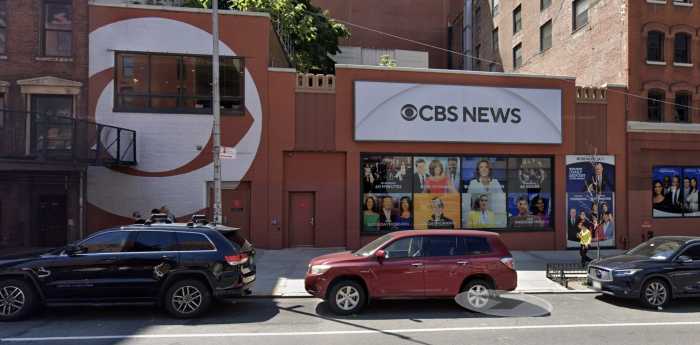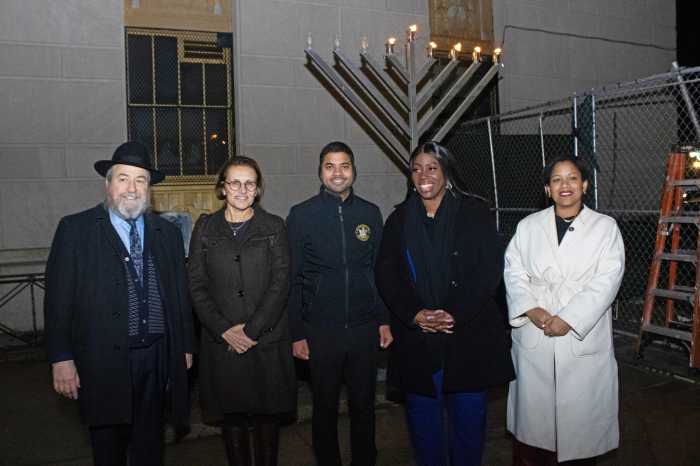When advocates of same-sex marriage pushed their case in the courts of both public opinion and law, they made sure to read the following language from that little card provided to them by the tolerance police: “No one will be forced to violate their religious beliefs if Adam can marry Steve and Madame can marry Eve.” Much like the Miranda warnings that became famous after the Supremes decided that magic words were all that were needed to protect the right against self-incrimination, this nuptial disclaimer was supposed to make us all breathe easier about that pesky First Amendment right to free exercise.
Well, you can start choking.
Yielding to pressures reminiscent of Tony Soprano, Gov. Jan Brewer vetoed Arizona’s new conscience law, the one that protected people of faith from having to provide services to gay and lesbian couples who wanted a wedding cake, a commemorative photo album, a gossamer bridal gown or a jazzy band. The violent pushback against the law shows just how hollow that “your religious beliefs are safe” promise really is. A law that would have simply permitted private business owners to refuse to provide services that violated deeply held religious principles was called a subversive attempt to codify bigotry.
And where, pray tell, was the bigot hiding? Why, in the kitchen, where the baked goods are kept.
And in the darkroom, where the photos are developed.
And in the basement, where the musical instruments are stored.
And in the dressing room, where the measurements are taken.
These are the safe houses of hate and prejudice, places where evil believers take refuge from the same-sex juggernaut.
This reasoning was both predictable and troubling. You just knew that when the Supreme Court dismantled part of the Defense of Marriage Act last year, and some states took up the crusade by passing laws to legalize gay nuptials, any hint of opposition would be labeled bigotry. In fact, this isn’t news. From the time that the first man took his boyfriend’s hand and said “I do … want a domestic partnership,” opposition to same-sex unions (whether based on the law or in faith) was considered tantamount to Bull Connor hosing someone down.
It’s not that I don’t get the anger from the LGBT community at the idea of some judgmental bakers, photographers and wedding planners. My ancestors were treated like trash because they fingered rosaries and believed that a virgin appeared in grottos.
(She did, by the way.) Anytime we are discriminated against because of something we hold dear, it rankles the soul.
But discrimination, hurtful as it can often be, is not necessarily illegal. It is also not necessarily bigotry. We make exceptions all the time for those who have certain spiritual “do not cross” lines, like the Quakers who were excused from combat duty because of their pacifism.
This was not about legal bars to same-sex marriage. This was about protecting someone against a lawsuit if he refused to bake a wedding cake. Telling people that they can’t get married is very different from telling them that you won’t celebrate their union. Not everyone has to like you, not everyone has to agree with you and not everyone has to serve you.
But, you will say, this was just like those segregated lunch counters in the South, when those racist crackers refused to break bread with black folk. Appealing as that analogy might be to the lazy mind, it’s not the same thing. Racial discrimination was never officially motivated by religious principle. Yes, there were some miscreants who tried to use the Bible to say that a black man and a white woman couldn’t eat soup and touch elbows, but the racism that motivated the “segregation now, segregation forever” movement was very different from the faith-based belief that marriage is a sacred union between one man and one woman.
Why? Because some people who don’t have a bigoted bone in their bodies believe that marriage is a sacred union designed for procreation and the glorification of God. You can disagree with that, you can even find it laughable and antiquated. But it is a legitimate belief. Congress passed the Restoration of Religious Freedom Act to protect that belief, and others like it.
On the other hand, there’s nothing legitimate in pointing to the Bible to refuse dinner to an African-American. Similarly, laws that protect religious freedom can’t be expanded to allow a business to exclude any person for any flimsy reason just because he can point to a Bible verse. The belief must be fundamental, and the requested service must directly violate that belief. There’s no reason to believe that this law wouldn’t have been narrowly applied.
We cannot legislate against hurt feelings. We can only hope that people learn to accept one another. Until then, no one should be compelled to choose between a courthouse bench and a wooden pew.
It’s a shame that Gov. Brewer let the noise distract her from that truth.
Christine M. Flowers is a lawyer and columnist for the Philadelphia Daily News.




































